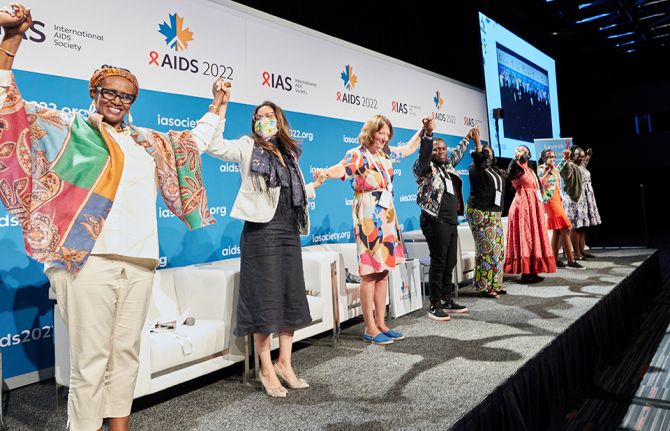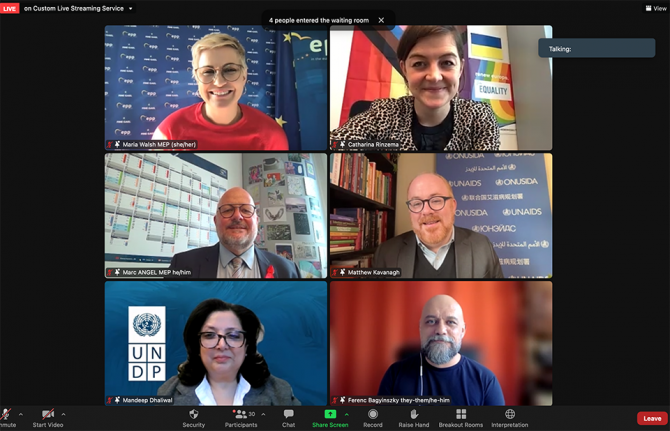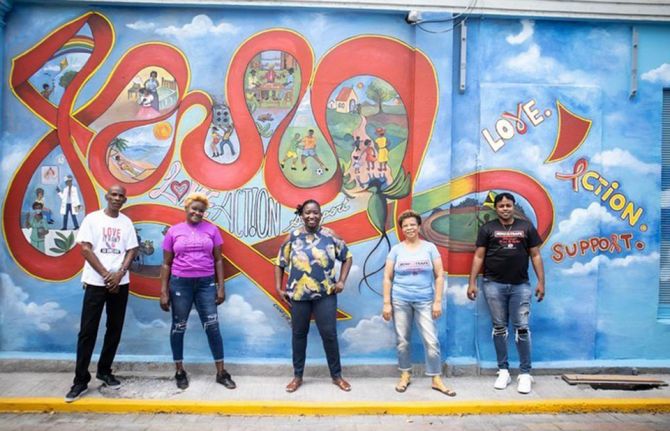
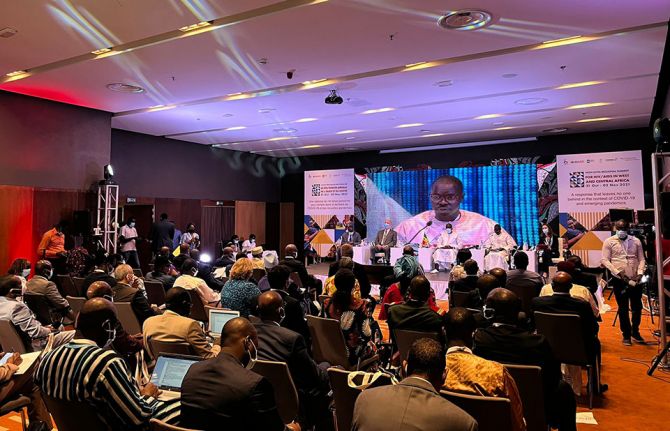
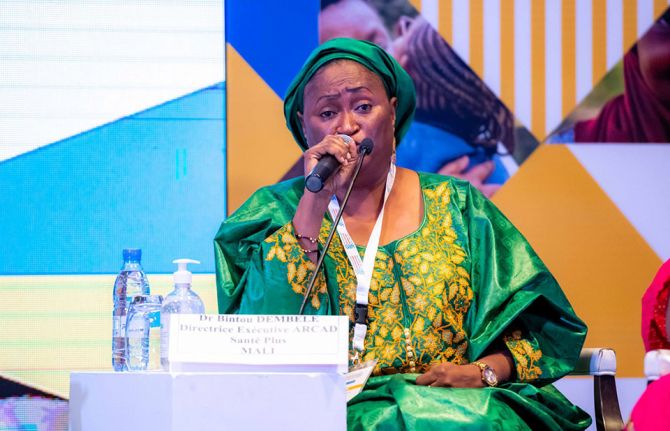
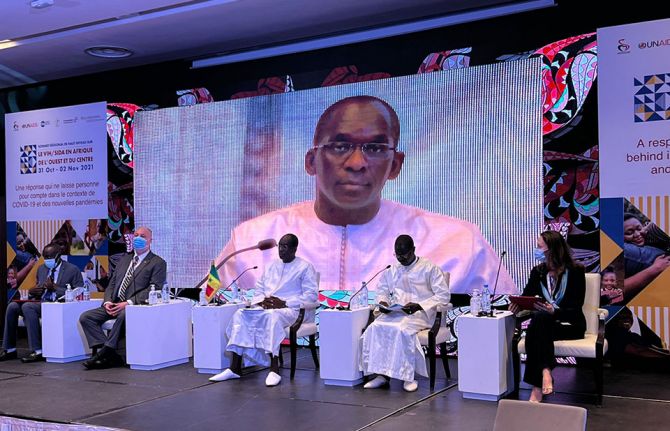
Update
Regional HIV summit aims to reinforce HIV response in Western and Central Africa
01 November 2021
01 November 2021 01 November 2021Delegations from 26 countries including 16 government ministers and representatives from civil society from the West and Central African region have formally opened the regional HIV summit, co-organized by UNAIDS and the Civil Society Institute of HIV and Health in West and Central Africa.
Following the welcome speeches, participants ranging from the heads of National AIDS councils to donors, the Global Fund and UNAIDS as well as their co-sponsors, began addressing the lagging HIV response in the region and how to overcome such setbacks.
The Western and Central Africa region represents only 8% of the world’s population but is home to more than 12% of all people living with HIV globally. In addition, 1 in 3 new HIV infections among children occur in this region with only 35% of children on treatment (vs 77% of adults.)
For Daouda Diouf, Executive Director of the Civil Society Institute of HIV and Health in West and Central Africa based in Dakar, a reset button must be activated to get HIV back on the agenda and further empower civil society.
“Our main expectation from the summit is to have civil society officially recognized as a key contributor in the countries within the official health systems and unofficial ones that the community health workers and civil society so aptly support,” he said.
Mr Diouf wants civil society to be on a more equal footing in the region and stressed that when community health workers, peer educators and civil society are involved, countries tend to have better health outcomes.
UNAIDS Fast Track Director a.i. Fodé Simaga agrees. Citing the fact that more than 65% of the new HIV infections in the region are among key populations and their partners, he believes civil society plays a crucial role with a specific added value.
“Considering the statistics, we rely on civil society and their networks to find people at risk of HIV, and reach out to them,” he said. He added that what is needed now is to reinforce their capacities.
“We can no longer consider civil society low-cost, ad-hoc health providers, they are an integral part of the healthcare systems that now need to be fully funded and supported,” Mr Simaga said.
Aside from advocating for civil society, a main session will focus on governments increasing domestic funding in the HIV response and another will be on the Education Plus initiative that stresses the importance of keeping girls and young women in secondary school. Additional break-out sessions will focus on HIV policies such as where and how to best distribute anti-retroviral pills, multi-month dispensing of medicine, prevention and combating stigma and discrimination.
The President of Senegal, Macky Sall, will close the three-day summit with a call to action from governments and civil society to close the gaps in the region’s HIV response.

